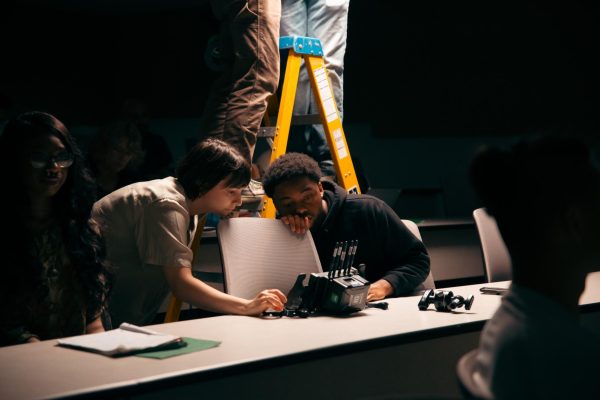‘Both teams played hard’
February 27, 2008
Little things mean a lot.
Actions speak louder than words.
Quitters never win.
Clichés are here to stay, whether we like it or not. What makes clichés interesting is that different people seem to take different approaches to applying the more universally accepted clichés to their lives and relationships.
What constitutes “little things?” What types of actions always trump words? At some point, I’m sure someone has quit and still been lucky enough to win at some type of competition.
The point is that clichés tend to paint an interesting depiction of reality. Like many widely accepted principles, clichés are not
always true. Rules are meant to be broken. Clichés can be used to further explain other clichéd conundrums.
Confused yet?
I’m not.
We use clichés to explain ourselves when
we do not feel capable of expressing our emotions at a given moment. Some people choose to write poetry or short stories. Some use simple clichés instead.
The art of the cliché is probably most apparent to the general population in sports. Athletes, coaches and analysts alike have a seemingly undying love for cliché usage.
No one has taken the art of the cliché in sports to a higher level than NBA player Rasheed Wallace of the Detroit Pistons. During his days with the Portland Trail Blazers, Wallace had a frustrating night on the court. And during the postgame press conference, he uttered the phrase “both teams played hard” numerous times, regardless of the questions being asked. When he felt that he had finally proved his point, he simply stated “both teams played hard, God bless and good night.”
In terms of cliché usage, this was nirvana. Thank you, Rasheed.
In the arena of sports clichés, a dedicated Web site has even been created to observe and analyze the work of art that is the sports cliché. Found at www.sportscliche.com, the page has no advertisements and houses a mountain of sports cliché information. Some of the highlights include an entire section dedicated to the phrase “no question about it” and another section anointing certain clichés “Hall of Fame” status.
Of course, clichés do not begin and end with sports in mind. Writing a weekly column is quite the powerful vehicle for opinion expression, but not so much if you truly believe that actions speak louder than words. Taking it even further than that – is speaking considered an action? How about the process of actually writing? Does it count if I never touch a pen or pencil and compose directly to my favorite word processing software? How about dictation? Voice-to-type software? Plagiarism? What are actions and what are words?
Now I’m confused.
Clichés are confusing. I thought they were supposed to aid the process of expressing how I feel? Apparently, I was wrong. Maybe I should concentrate more on learning the nuances of the language.
Perhaps if I give 110 percent, I’ll have it all figured out.
Rory Geraghty is a senior electronic
media production major and a columnist
for the Daily Kent Stater. Contact him at [email protected].























